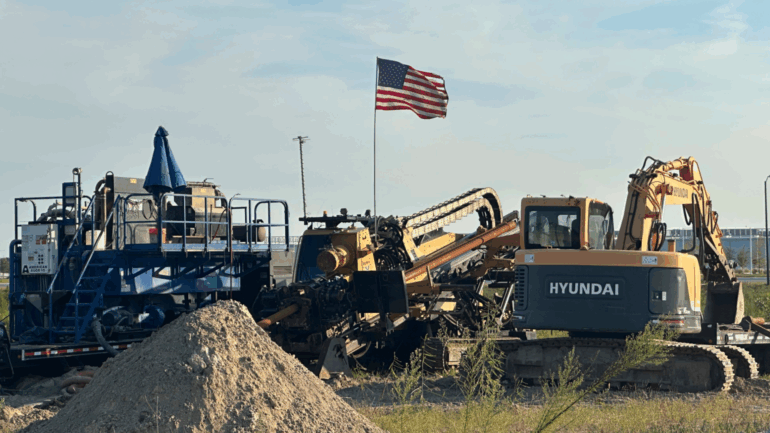On September 5, 2025, U.S. immigration authorities conducted a massive raid at a Hyundai Motor car battery factory under construction in Ellabell, Georgia, detaining approximately 475 workers, most of whom were South Korean nationals. This operation, the largest single-site enforcement action in the U.S. Department of Homeland Security’s (DHS) history, has halted work on a project that represents one of Hyundai’s largest investments in the United States.
Details of the Raid
The raid targeted a facility being built by Hyundai Motor and LG Energy Solution (LGES) as part of a $26 billion investment in Georgia, which is itself a component of South Korea’s $150 billion commitment to U.S. projects. According to Steven Schrank, special agent in charge of investigations for Georgia, the detained workers were found to have entered the U.S. illegally or overstayed their visas. The operation followed months of investigation and focused on a network of subcontractors at the site, not Hyundai’s direct employees.
Hyundai Motor clarified that none of the detained workers were directly employed by the company. In response, Hyundai’s chief manufacturing officer for North America, Chris Susock, will oversee the Georgia megasite to ensure compliance with laws. The company emphasized its “zero tolerance” policy for legal violations and pledged to investigate its suppliers and subcontractors.
Broader Context and Implications
The raid comes amid President Donald Trump’s intensified immigration crackdown, which has given Immigration and Customs Enforcement (ICE) broader authority to conduct such operations. While Trump has stated his focus is on deporting serious criminals, ICE data shows an increase in detentions of non-criminals, drawing criticism from rights advocates who argue these raids disrupt communities and businesses.
This action could strain relations between the U.S. and South Korea, a key ally and major investor in the U.S. economy. The two nations have been negotiating a trade deal involving $350 billion in investments, and South Korea’s Foreign Ministry expressed “regret and concern” over the raid. The operation may complicate diplomatic and economic ties at a time when both countries are navigating trade tensions.
Impact on the Georgia Project
The Hyundai-LGES battery plant is part of Georgia’s largest-ever investment project, aimed at boosting the state’s economy through job creation and clean energy development. The raid has paused construction, raising concerns about delays and their potential ripple effects on the local economy and U.S.-South Korea economic collaboration.
The White House defended the raid, stating that foreign workers must enter the U.S. legally with proper work authorizations. However, the scale of the operation and its targeting of a major foreign investment project highlight the complexities of balancing immigration enforcement with economic priorities.
As investigations continue, the incident underscores the challenges of large-scale international projects in the context of strict immigration policies, leaving questions about how Hyundai and its partners will navigate the fallout and resume work on this critical facility.
